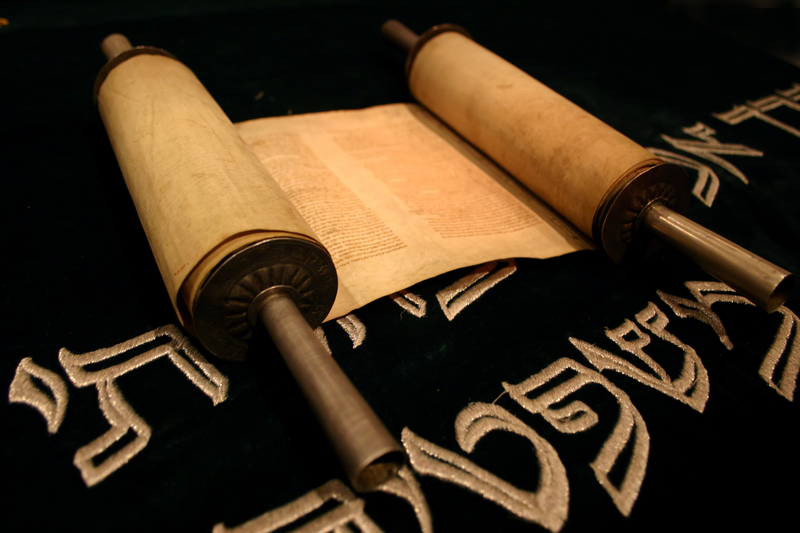
Lifting the Levi from the Ground - Reading the Written Torah at Night
The Leviim had replaced the first born and assigned the duties of singing in and guarding the משכן - loading the wagons and transporting the dismantled משכן and holy vessels after they had been covered by the Kohanim. At least those who were to commence certain of these sacred duties (transport) from the ages of (25) thirty to fifty would have to be purified as a prerequisite to service.
We have already learned in a previous essay that the process of elevation of the Kohanim is termed sanctification התקדש - while the same regarding the Leviim is termed purification הטהרו - Amongst the purification rites of the Leviim is for Aharon to ceremoniously lift them up from off the ground as an elevated offering before Hashem. In order to pierce the secret behind this requirement - We must be reminded of the Jewish triad of spirituality - which is expressed succinctly in the כהן לוי ישראל - groupings.
This reflects the spiritual rule that שפע comes down effectively from above when each is properly positioned - paralleling their spiritual roots above. That means that the כהנים are rooted in חסד - the לויים in גבורה associated with judgement and the ישראלים in תפארת the balance of these forces. They can elevate themselves during their service of the Creator to the loftier levels of חכמה - holiness בינה purity and דעת the balance of these forces respectively. This collective triad of Israel act as a unit to bring down blessings to the worldly receptacle or the ארץ land or earth.
This כלי or vessel of blessing or the spiritual earth retains properties of דין - similar to that of the Levi. It is a necessity in its role to receive from above. The aspect of דין is associated with limitation or the ability to capture the blessing. As the method to drink water flowing down a mountain side is to limit and capture it in ones hands. In order for a Levi to attain purity he must not be connected to the earth - as a connection amongst two forms of Din can be harmful.
Hence the Torah informs us of the requirement to physically and spiritually lift the Levi off the ground to sever the possible harmful connection he has with it. This potential for havoc when fusing two aspects of Din together has even led our Sages to suggest that one not study the written law (Torah of Din) during the weekly night time hours (Time of Din).
Night as a Time of Din
In its introduction - the Tikune HaZohar relates that we should be aware that there are times when justice and judgement prevail and other times when kindness prevails. R. HaAri teaches in a few places (SH Arbit 1 and PEH Shaar Minha - Arbit) that with the onset of evening - judgement is aroused. So it is that while the day time hours retain the general aspect of kindness - the night time hours reflect more an aspect of Din.
Most of us are aware of how this is reflected in a number of laws as well as in the different tone of the prayers. We find for example the mention of danger that night time poses throughout various places in scripture (e.g., Yehoshua 10:12) our liturgy (e.g., in Arbit; ומפחד לילה - and Rabbinic literature (e.g., Pirke Avot 3:5) - The danger that nighttime poses is not merely due to the physical reality of darkness, but rather to its spiritual cause; the arousal of Judgement above.
This fact is to be taken into consideration with respect to even the type of Torah we are to learn during these respective time zones. The source of this distinction of times as it relates to our learning of Torah is the PDRE 46 that explains what part of the Torah Moshe learned on the respective days and nights on Har Sinai. While he studied the written law by day he learned the oral law at night. This evidently gave rise to what I would call a potent rabbinic suggestion rather than a definitive Talmudic ruling that one is not to study the written law (and its Targum) at night.
Written Law Din - The Oral Law Kindness
As the night and day are differentiated between judgement and kindness so it is with the learning of our Holy Torah. If we may consider that there exists the two categories of the תורה שבכתב - the written law and the תורה שבעל פה - the oral law - then the former arouses Din while the later kindness. R. HaAri (SM - Va'ethanan) on the Misva of שנים מקרא ואחת תרגום - explains that מקרא is spiritually associated with the פנים or frontal aspect of Din - the תרגום אונקלוס is associated with the אחור or exterior aspect of Din.
This led R. HaAri to rule concerning the Misva found in in the Talmud (Ber 8) to read the verses of the parasha twice שנים מקרא and the associated אחת תרגום - once - that it is not proper to do so during the weekday nights with the exception of Thursday night when as a result of the proximity to Shabbat Mercy is aroused and it is proper to read the מקרא of the second set of 26 verses once as is known.
He writes אבל בשאר לילי השבוע during the other weeknights אין ראוי לקרא - מקרא - לפי שהמקרא הוא בעשיה - it is not proper to read the written law - as its spiritual root is associated with the world of Asiya - והלילה עצמה הוא בחינת עשיה - While the nighttime hours themselves are also under the spiritual influence of Asiya - והכל הוא דינין - They (the written law and night hours) are both associated with Din ואין ראוי לעורר הדינין - And it is not proper to arouse a double douse of Judgement simultaneously.
The Extent of the Ruling
It is apparent from the later authorities that the restriction of reading מקרא at night is only for one who has the capability and wherewithal to learn or read from the oral law. Furthermore - it is suggested that if one wants to learn the written law he should do so with translation (other than תרגום אונקלוס ) or commentary.
However, if given a choice of reading מקרא or wasting time sitting idle - surely one should learn תורה שבכתב - Concerning the reading of תהלים - the חיד״א writes that he heard a great מקובל - that it is not subject to the restrictions of the written law noted above - Based on this possibility the Hida writes that one can rely on this leniency and read תהלים after חצות לילה -(See Yesod HaEmunah 190-194) is clear that this possible restriction is surely not applicable in the reading of תהלים on behalf of someone who is seriously ill!
Additional Thoughts
It appears to me that the restriction of uniting two types of "Holy" Din is particularly damaging for one who wants to elevate himself. The Torah enjoins only the Levi who must serve in purity to be elevated from the ground - עשיה - This is so he can be raised from his status of גבורה to one of בינה - I believe that this was the intent of Yaakov's blessing to his sons Shimon & Levi.
Namely since they represent two types of Din their unification is not forbidden - but will restrict their ability to elevate themselves to בינה - Hence Yaakov calls them אחים brothers - in that they both are rooted in Din and adds the words כלי חמס מכרתיהם - instruments of crime are their wares - Cursed be their rage - Then Yaakov provides the solution that these two aspects of Din cannot be brought together אחלקם ביעקב - and they will also not have any permanent attachment to the land אפיצם בישראל - As we said above - the land having a spiritual affinity with another aspect of Din.
Hence, the Leviim are not given a real נחלה in the land and Shimon is scattered in the area of Yehuda. In conclusion one who desires to elevate himself - and can be cognizant of the spiritual dimension of the area of learning and the influences of the times should act accordingly. He should set out to learn the oral law at night - evoking a thread of kindness into the worlds (AZ 3) - Thereby paralleling the הניפה ceremony elevating the Levi off the ground by Aharon the man of Hesed.








